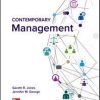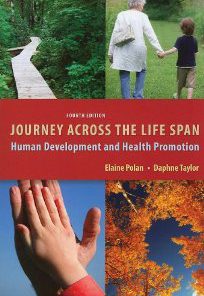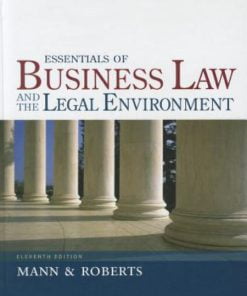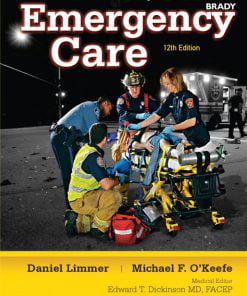Infants Toddlers and Caregivers A Curriculum of Respectful Responsive Relationship Based Care and Education 11th Edition Gonzalez Mena Test Bank
$35.00 Original price was: $35.00.$26.50Current price is: $26.50.
Infants Toddlers and Caregivers A Curriculum of Respectful Responsive Relationship Based Care and Education 11th Edition Gonzalez Mena Test Bank
Instant download Infants Toddlers and Caregivers A Curriculum of Respectful Responsive Relationship Based Care and Education 11th Edition Gonzalez Mena Test Bank pdf docx epub after payment.
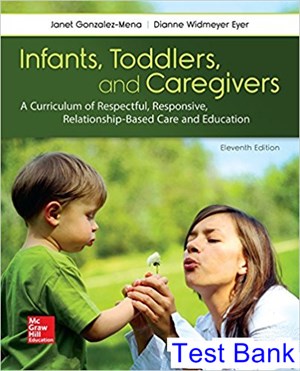
Product details:
- ISBN-10 : 1259870464
- ISBN-13 : 978-1259870460
- Author: Mena
Infants, Toddlers, and Caregivers is an ideal introduction to care and education in the first three years of life, featuring a respectful approach inspired by field pioneers Magda Gerber and Dr. Emmi Pikler. The program provides practical information based on theoretical and research foundations that students can implement in a variety of infant and toddler settings. With the impacts of school readiness and technology in early childhood education today, this program focuses on the value of free play, the development of self-reliance, and the importance of responsive, respectful interactions. The Connect course for this offering includes SmartBook, an adaptive reading and study experience which guides students to master, recall, and apply key concepts while providing automatically-graded assessments.
Table Of Contents
- Part 1 Focus on the Caregiver
- chapter 1 Principles, Practice, and Curriculum
- Relationships, Interactions, and the Three Rs
- Ten Principles Based on a Philosophy of Respect
- Curriculum and Developmentally Appropriate Practice
- Summary
- Key Terms
- Thought/Activity Questions
- For Further Reading
- Notes
- chapter 2 Infant-Toddler Education
- What Infant-Toddler Education Is Not
- What Infant-Toddler Education Is: The Components
- Infant-Toddler Education and School Readiness
- Summary
- Key Terms
- Thought/Activity Questions
- For Further Reading
- Notes
- chapter 3 Caregiving as Curriculum
- Thinking Again About Infant-Toddler Curriculum
- Caregiving Routines
- Differing Needs and Perspectives
- Summary
- Key Terms
- Thought/Activity Questions
- For Further Reading
- Notes
- chapter 4 Play and Exploration as Curriculum What Do You See?
- Adult Roles in Play
- Environmental Factors That Influence Play
- Summary
- Key Terms
- Thought/Activity Questions
- For Further Reading
- Notes
- part 2 Focus on the Child
- chapter 5 Attachment What Do You See?
- Brain Research
- Milestones of Attachment
- Measuring Attachment
- Attachment Issues
- Children with Special Needs: The Importance of Early Intervention
- Summary
- Key Terms
- Thought/Activity Questions
- For Further Reading
- Notes
- chapter 6 Perception What Do You See?
- Sensory Integration
- Hearing
- Smell and Taste
- Touch
- Sight
- Multisensory Experiences and the Outdoor Environment
- Children with Special Needs: Educating Families about the Individualized Family Service Plan
- Summary
- Key Terms
- Thought/Activity Questions
- For Further Reading
- Notes
- chapter 7 Motor Skills What Do You See?
- Physical Growth and Motor Skills
- Brain Growth and Motor Development
- Large Motor Skills and Locomotion
- Small Motor Skills and Manipulation
- Fostering Motor Development
- Children with Special Needs: Finding Resources
- Summary
- Key Terms
- Thought/Activity Questions
- For Further Reading
- Notes
- chapter 8 Cognition What Do You See?
- The Cognitive Experience
- Sensorimotor Experience: Piaget
- Sociocultural Influences: Vygotsky and Piaget
- Supporting Cognitive Development
- Brain-Based Learning
- Children with Special Needs: Early Childhood Inclusion
- Summary
- Key Terms
- Thought/Activity Questions
- For Further Reading
- Notes
- chapter 9 Language
- The Progression of Language Development
- What Language Allows a Child to Do: The Cognitive Link
- The Brain and Early Language Development
- Fostering Language Development
- Early Literacy
- Cultural Differences, Bilingualism, and Dual Language Learners
- Children with Special Needs: Supporting Parents and Families
- Summary
- Key Terms
- Thought/Activity Questions
- For Further Reading
- Notes
- chapter 10 Emotions
- The Development of Emotions and Feelings
- Temperament and Resiliency
- Helping Infants and Toddlers Cope with Fears
- Helping Infants and Toddlers Cope with Anger
- Self-Calming Techniques
- Developing Self-Direction and Self-Regulation
- The Emotional Brain
- Children with Special Needs: Challenges and Trends
- Summary
- Key Terms
- Thought/Activity Questions
- For Further Reading
- Notes
- chapter 11 Social Skills
- What Do You See?
- Early Social Behaviors
- Stages of Psychosocial Development
- Guidance and Discipline: Teaching Social Skills
- Teaching Prosocial Skills
- Promoting Healthy Brain Growth
- The Special Need of All Children: Self-Esteem
- Summary
- Key Terms
- Thought/Activity Questions
- For Further Reading
- Notes
- part 3 Focus on the Program 263
- chapter 12 The Physical Environment
- A Safe Environment
- A Healthful Environment
- The Learning Environment
- Developmental Appropriateness
- Assessing the Quality of an Infant-Toddler Environment
- Summary
- Key Terms
- Thought/Activity Questions
- For Further Reading
- Notes
- chapter 13 The Social Environment
- Identity Formation
- Cultural Identity
- Modeling Self-Esteem by Taking Care of Yourself
- Summary
- Key Terms
- Thought/Activity Questions
- For Further Reading
- Notes
- chapter 14 Adult Relations in Infant-Toddler Care and Education Programs
- Parent–Caregiver Relations
- Parent Education
- Caregiver Relations
- Respect as the Key to Adult Relationships
- Summary
- Key Terms
- Thought/Activity Questions
- For Further Reading
- Notes
- appendix A Quality in Infant-Toddler Programs: A Checklist
- appendix B Environmental Chart
- Glossary
- References
- Index
People also search:
Infants Toddlers and Caregivers
Infants Toddlers and Caregivers A Curriculum of Respectful Responsive Relationship Based Care and Education
A Curriculum of Respectful Responsive Relationship Based Care and Education pdf
Related products
Test Bank
Test Bank for Essentials of Business Law and the Legal Environment, 11th Edition: Richard A. Mann
Test Bank
Test Bank for Clinical Immunology and Serology A Laboratory Perspective, 3rd Edition: Stevens



